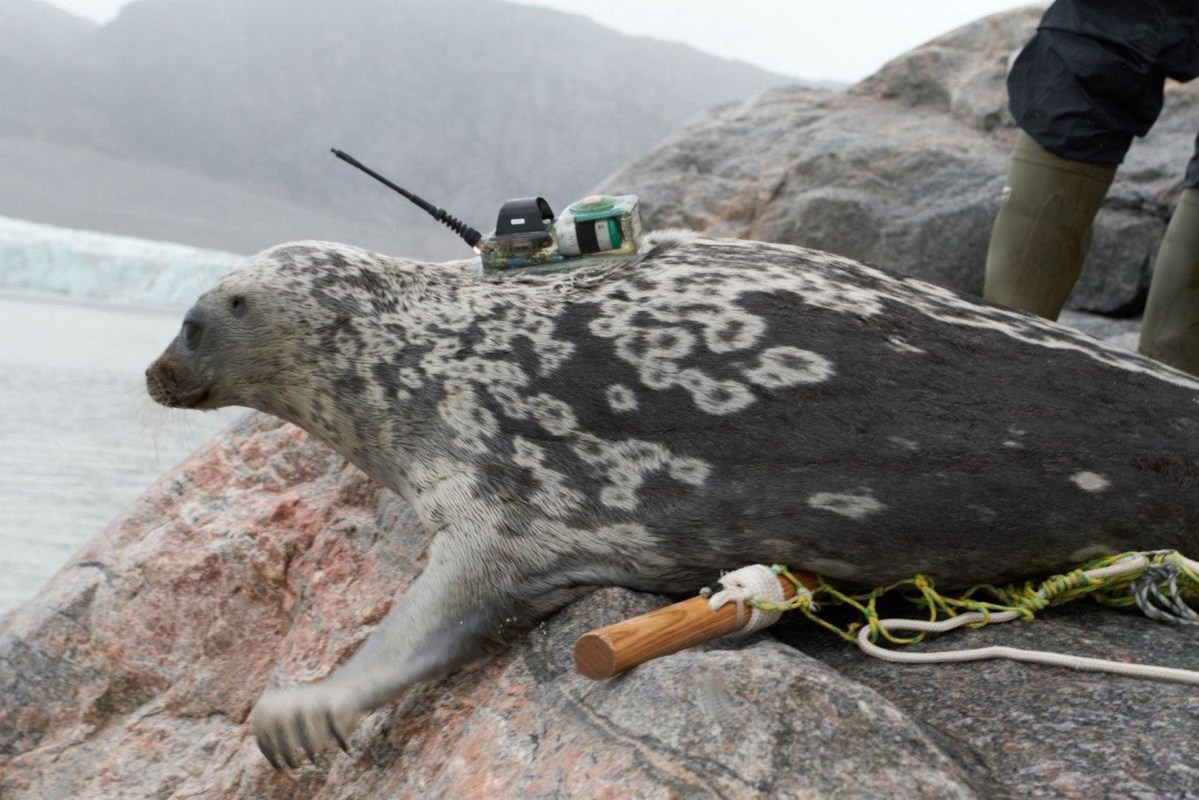A floppy-footed type of seal has just been discovered in Greenland's frigid waters, proving the Arctic still has some secrets up its icy sleeves.
Local hunters near the famous Ilulissat Icefjord in western Greenland have long known about the Kangia — a unique variety of ringed seal thriving in the frigid waters. In December, scientists revealed that this adorable creature is a special new, evolutionarily distinct type of ringed seal, according to Denmark's Aarhus University.
The Kangia seals are larger than their relatives, and their distinct, patterned fur coat makes them easily identifiable. Even more uniquely, there are only about 3,000 swimming around their icy home, per the Aarhus University report.
According to tracking devices, these seals tend to stick close to the Ilulissat Icefjord instead of migrating long distances like other kinds of Arctic seals.
The results, published in the scientific journal Molecular Ecology, indicate Kangia seals have been genetically isolated for over 100,000 years. But exactly how and why they separated reportedly remains a mystery waiting to be solved.
The research project, led by Greenlandic and Danish scientists over several years, involved capturing live seals in nets to collect tissue samples, attaching satellite trackers, and releasing them back into the water, as the university report described. Despite the challenges of the extreme Arctic climate, their work succeeded in describing this brand-new seal inhabiting the unique Ilulissat Icefjord region.
Study co-author Aqqalu Rosing-Asvid, senior researcher at the Pinngortitaleriffik (the Greenland Institute of Natural Resources), told Aarhus University, "We were able to count the seals from a plane and therefore able to estimate that there are only approximately 3,000 of these special Kangia ringed seals."
As study participant Rune Dietz pointed out, many unstudied fjords likely harbor additional diversity, unable to adapt fast enough to modern changes.
"There are many other fjords in the Arctic that have not yet been studied in detail, and where the ringed seals may also have locally developed new genetic variants," Dietz said.
In time, researchers may discover what those genetic variants are — and what this new type of seal can teach us about our world.
Join our free newsletter for cool news and cool tips that make it easy to help yourself while helping the planet.









